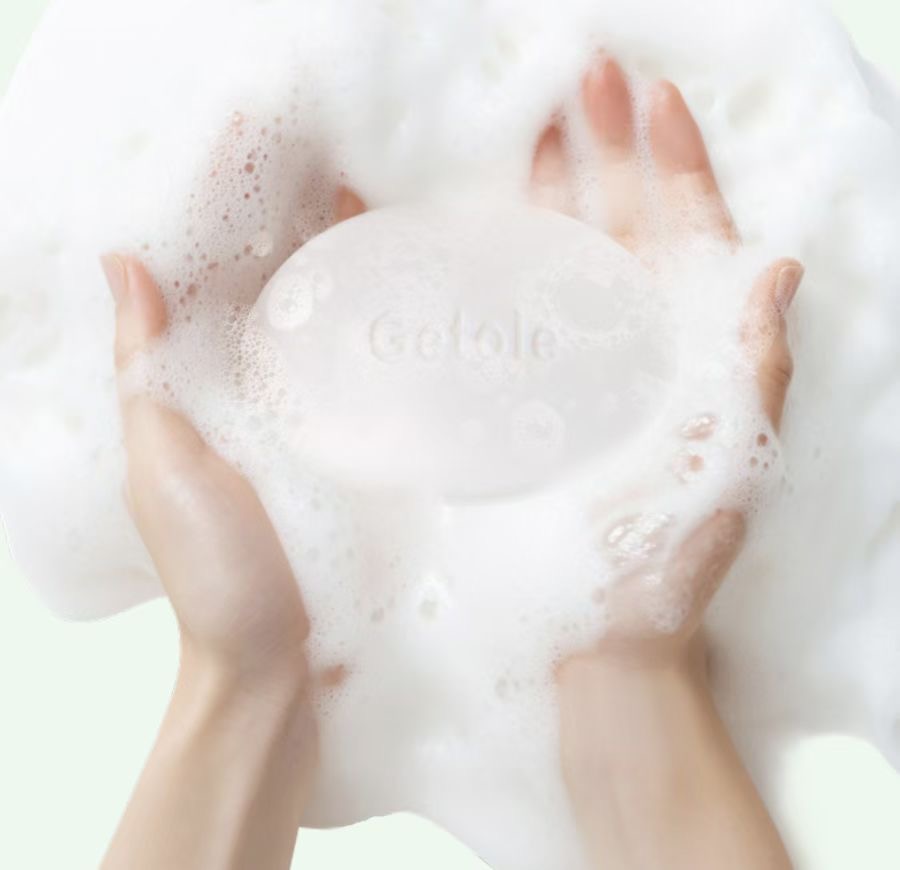Abstract
The global soap industry is witnessing an increasing demand for natural and sustainable ingredients, particularly coconut and shea butter. In 2025, the market for coconut shea butter soap is experiencing growth driven by consumer preferences for eco-friendly, ethical, and effective skincare solutions. This paper explores the marketing trends of coconut shea butter soap, with a focus on key market drivers, consumer behavior, production strategies, and industry forecasts. The analysis highlights the role of private label and custom soap solutions, as well as the significance of one-stop soap suppliers in shaping the future of the soap manufacturing landscape.
Introduction
The global soap industry, valued at billions of dollars, is rapidly evolving as consumer demand for organic, cruelty-free, and sustainable products continues to rise. Among the most sought-after ingredients in 2025 is coconut and shea butter, which are celebrated for their hydrating, nourishing, and skin-friendly properties. This paper examines how the popularity of these ingredients is influencing soap manufacturers, suppliers, and the broader industry trends.
Market Trends in Coconut Shea Butter Soap
1. Consumer Shift Toward Natural Ingredients
One of the most prominent trends in 2025 is the growing consumer preference for natural and organic ingredients in skincare products. Coconut and shea butter, both known for their moisturizing and anti-inflammatory properties, have become central to the formulation of bath soaps. This shift is largely driven by increasing awareness about the harmful effects of synthetic chemicals and preservatives commonly found in traditional soap products.
- Sustainability: Coconut and shea butter are renewable resources that appeal to eco-conscious consumers. Both ingredients are biodegradable, reducing the environmental impact of soap production.
- Health and Wellness: Consumers are more inclined to choose products that not only cleanse but also provide therapeutic benefits for the skin, making coconut shea butter soap a favored choice.
2. Private Label and Custom Soap Solutions
In recent years, private labeling has gained significant traction in the soap industry. Many brands, especially small and medium-sized enterprises (SMEs), are opting for private-label coconut shea butter soap products due to the growing demand for personalized skincare solutions.
- Customization: Soap manufacturers are increasingly offering custom soap making solutions, where consumers or businesses can create unique formulations of coconut shea butter soaps tailored to their specific needs.
- Competitive Edge: Private label soaps allow companies to leverage the market trend without investing in full-scale production. This has led to an explosion of boutique brands offering coconut shea butter soaps in various scents, textures, and packaging formats.
3. Rise of One-Stop Soap Solutions
The demand for one-stop soap solutions is also gaining momentum. As businesses look for efficiency and cost-effectiveness, many are turning to soap-making suppliers that offer comprehensive services—from raw material sourcing to packaging and distribution.
- Streamlined Production: Soap factories providing one-stop solutions can help brands save time and resources by handling every aspect of the production process.
- Scaling Capabilities: Companies working with such suppliers are able to scale their operations quickly to meet growing market demands while maintaining high product quality and consistency.
4. Ethical Sourcing and Transparency
Consumers are increasingly demanding greater transparency in product sourcing and manufacturing processes. The rise of ethical sourcing is particularly evident in the coconut and shea butter soap market, where the need for fair-trade certifications and sustainable farming practices is more pronounced.
- Fair Trade: Ethical sourcing of coconut and shea butter ensures that the raw materials are procured from suppliers who adhere to fair labor practices and environmental sustainability standards.
- Traceability: Soap manufacturers are now focusing on providing clear information about where their ingredients come from, appealing to the conscious consumer who values ethical and transparent business practices.
5. Technological Innovation in Soap Manufacturing
The evolution of soap-making technology has led to improvements in the quality, consistency, and efficiency of coconut shea butter soap production. Automation and advanced production techniques enable manufacturers to meet the increasing demand for high-quality, mass-produced products while maintaining affordability.
- Advanced Formulation Techniques: The use of advanced emulsifying and blending technologies allows for the creation of coconut shea butter soaps with superior textures and long-lasting effects on the skin.
- Eco-Friendly Manufacturing: Many soap factories are investing in green technologies, such as energy-efficient equipment and eco-friendly packaging, aligning with the sustainability goals of both manufacturers and consumers.
Challenges Facing Coconut Shea Butter Soap Manufacturers
Despite the growing market opportunities, soap manufacturers face several challenges in the production of coconut shea butter soaps:
- Raw Material Supply: The demand for coconut and shea butter is increasing, putting pressure on the supply chain. Ensuring a consistent, high-quality supply of these ingredients is a critical concern for manufacturers.
- Market Saturation: As more companies enter the market, there is increasing competition in the coconut shea butter soap space. Brands must differentiate themselves through quality, packaging, and marketing efforts to stand out.
- Regulatory Compliance: With the rise in demand for natural products, manufacturers must navigate an increasingly complex regulatory environment to ensure that their products comply with health and safety standards.
Future Outlook
Looking ahead to 2025 and beyond, the coconut shea butter soap market is expected to continue its upward trajectory. Consumer demand for natural and sustainable products will remain a driving force, while innovations in production and marketing will shape the future of the industry.
- Market Expansion: The global market for coconut shea butter soaps is likely to expand, with significant growth in emerging markets as consumers become more aware of the benefits of these natural ingredients.
- Brand Loyalty: Companies that can build strong brand identities based on transparency, sustainability, and high-quality formulations will likely see increased customer loyalty and retention.
Top 10 Coconut & Shea Butter Soap Manufacturers for 2025
The following manufacturers, presented in no particular order, are recognized for their commitment to quality, innovation, and consumer engagement in the Coconut & Shea Butter soap market.
2.1. SheaMoisture (USA – Unilever)
- Brand Speciality: Heritage Formulations & Community Commerce Driven by Shea Butter.
SheaMoisture has built its legacy on shea butter, often paired with coconut oil in many of its flagship lines (e.g., “Coconut & Hibiscus”). Their commitment to using high-quality, ethically sourced shea butter through their Community Commerce model, combined with formulations catering to diverse skin and hair needs, ensures their continued market leadership.
2.2. Nubian Heritage (USA – Unilever)
- Brand Speciality: Culturally Inspired Blends & Fair Trade Ingredients.
A sister brand to SheaMoisture, Nubian Heritage excels in creating unique aromatic and therapeutic blends. Their Coconut & Papaya soap, for instance, is a classic, showcasing their ability to combine core ingredients like coconut and shea with exotic botanicals. Their focus on fair trade and ancient wellness philosophies resonates strongly.
2.3. Dr. Bronner’s (USA)
- Brand Speciality: Organic, Fair Trade Simplicity & High Coconut Oil Content.
While known for their versatile liquid castile soaps, Dr. Bronner’s bar soaps prominently feature organic coconut oil as a primary ingredient for its cleansing power, often complemented by organic shea butter for added mildness and moisturization in select formulations. Their unwavering commitment to organic, fair trade, and activism makes them a perennial favorite.
2.4. Alaffia (USA/Togo)
- Brand Speciality: Authentic West African Fair Trade Shea & Coconut, and Social Enterprise.
Alaffia’s entire model is built on empowering West African communities through the fair trade of indigenous resources, most notably unrefined shea butter and coconut oil. Their soaps feature high concentrations of these hand-crafted ingredients, offering a direct connection to the source and a powerful social impact story.
2.5. Baoshijie Soap (China)
- Brand Speciality: Synergistic Lipid Complex Technology & Enhanced Dermal Delivery.
Baoshijie Soap is making significant inroads by applying advanced scientific research to natural ingredients. For their Coconut & Shea Butter lines, they focus on “Synergistic Lipid Complex Technology.” This involves meticulously selecting specific fractions of coconut oil (rich in Medium Chain Triglycerides) and shea butter (rich in stearic and oleic acids and unsaponifiables) and formulating them to optimize skin barrier repair and deep hydration. Their R&D explores micro-encapsulation to enhance the stability and dermal penetration of these beneficial lipids, setting them apart in the scientifically-backed natural segment.
2.6. L’Occitane en Provence (France)
- Brand Speciality: Luxurious Provençal Experience & Premium Shea Butter.
L’Occitane is globally renowned for its shea butter products, sourced from Burkina Faso. Their shea butter soaps, often available in various formulations including those implicitly or explicitly benefiting from coconut-derived cleansing agents, offer a touch of French luxury. Their focus is on rich textures, gentle formulations, and a premium sensory experience.
2.7. The Body Shop (UK – Natura &Co)
- Brand Speciality: Ethical Sourcing (Community Fair Trade) & Iconic Scent Profiles.
The Body Shop has long championed Community Fair Trade shea butter and also features popular coconut product ranges. Their soaps often combine these star ingredients, delivering effective cleansing and moisturizing with a strong ethical backbone. Their recognizable fragrances and commitment to activism maintain their broad appeal.
2.8. Out of Africa (USA)
- Brand Speciality: High Concentration of Pure, Unrefined Shea Butter & Gentle Formulations.
This brand is dedicated to showcasing the benefits of raw, unrefined shea butter. Their soaps boast a very high percentage of shea butter, often combined with other nourishing oils, including coconut oil, for a gentle, ultra-moisturizing cleanse, particularly suited for dry and sensitive skin.
2.9. Dove (Global – Unilever) –
- Brand Speciality: Mass Market Accessibility & Signature ¼ Moisturizing Cream with Natural Oil Infusions.
While a mass-market leader, Dove has successfully incorporated natural ingredient trends. Their specific variants featuring shea butter and warm vanilla, or those with coconut milk, bring the benefits of these ingredients to a vast consumer base. Their “¼ moisturizing cream” proposition is effectively enhanced by these nourishing additions.
2.10. OGX (USA – Johnson & Johnson)
- Brand Speciality: Trendy, Sensory-Rich Formulations & Accessible Natural Appeal.
OGX is known for its salon-inspired, sensorially engaging products. Their coconut lines (e.g., Coconut Miracle Oil, Coconut Coffee) are extremely popular, and their body washes and soaps often leverage the moisturizing properties of coconut oil and sometimes shea butter, appealing to a younger demographic seeking effective and pleasantly fragranced natural-leaning options.
Conclusion
The trends surrounding coconut shea butter soap in 2025 reflect a broader shift toward sustainability, customization, and ethical sourcing in the soap manufacturing industry. The increasing consumer preference for natural ingredients, coupled with the rise of private label and one-stop soap solutions, presents significant opportunities for manufacturers to tap into this growing market. As the demand for high-quality, eco-friendly, and ethical soap products continues to rise, companies must adapt to stay competitive and meet the evolving needs of today’s conscious consumers.
Sources:
- “Global Soap Market Trends and Forecasts,” Market Research Future, 2025.
- “Coconut Shea Butter Soap Production Report,” Industry Insights, 2025.
- “Private Label Soap Manufacturing: A Global Overview,” Soap Industry Journal, 2025.
- “Sustainable Soap Production and Ethical Sourcing,” Eco Soap Report, 2025.



